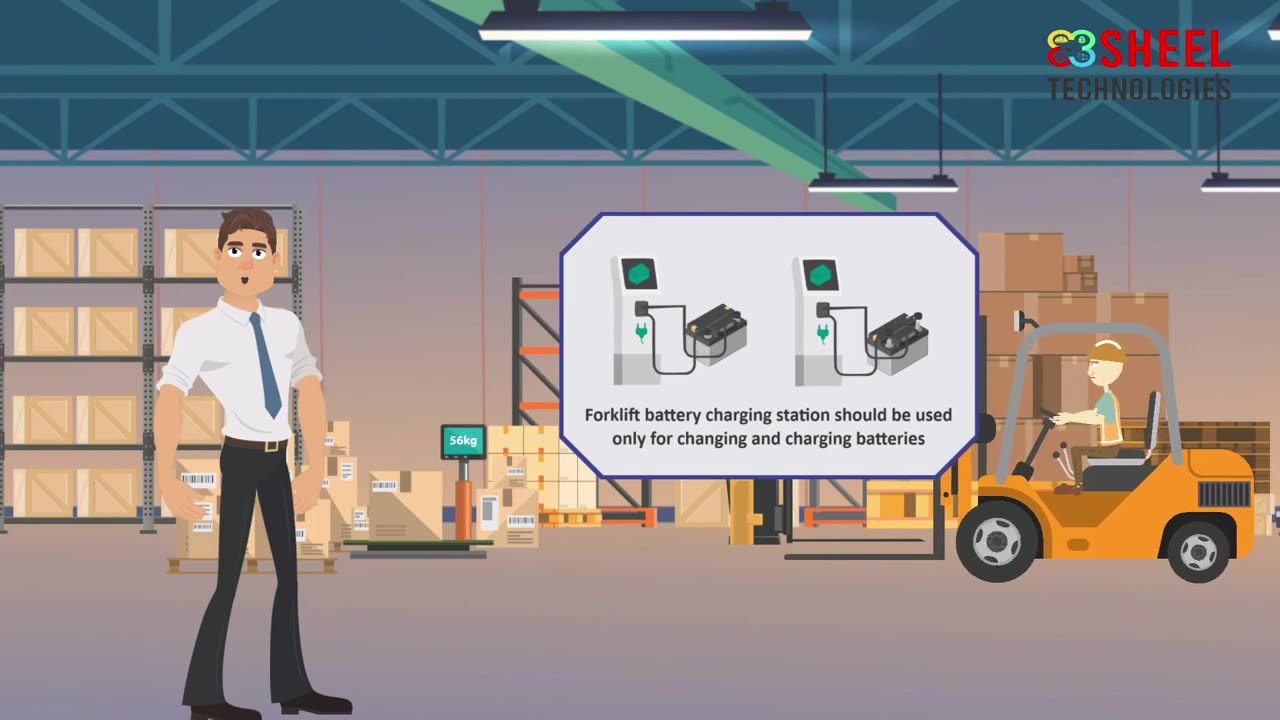Premium Only Content

Forklift Safety Training
Forklift safety training is essential to ensure the safe operation of forklifts in the workplace, preventing accidents and injuries. It is typically required by regulations like OSHA (Occupational Safety and Health Administration) in the U.S. or equivalent standards in other countries. Here's a breakdown of what forklift safety training should include:
---
### **1. Introduction to Forklift Safety**
- **Overview**: Importance of forklift safety and its role in workplace safety.
- **Regulations**: Explanation of OSHA or relevant local regulations.
- **Types of Forklifts**: Basic understanding of different types of forklifts and their uses.
---
### **2. Forklift Anatomy and Operation**
- **Parts of a Forklift**: Understanding controls, components, and their functions.
- **Stability Principles**: Center of gravity, stability triangle, and load balance.
- **Load Handling**: Proper techniques for lifting, lowering, and transporting loads.
---
### **3. Pre-Operational Inspections**
- **Checklist**: Tires, brakes, steering, forks, lights, and fluid levels.
- **Reporting Issues**: How to identify and report faulty equipment.
---
### **4. Safe Operating Practices**
- **Speed Control**: Safe speed limits in different areas.
- **Visibility**: Ensuring clear visibility and awareness of surroundings.
- **Pedestrian Safety**: Yielding to pedestrians, using horns, and maintaining safe distances.
- **Operating on Inclines**: Best practices for slopes and ramps.
---
### **5. Workplace-Specific Hazards**
- **Environment**: Awareness of surfaces, blind spots, and obstructions.
- **Traffic Rules**: Internal workplace rules for forklift traffic.
- **Hazardous Materials**: Proper handling and storage.
---
### **6. Emergency Procedures**
- **Accident Response**: Steps to take in case of an incident or rollover.
- **Fire Safety**: Handling flammable loads and fire extinguishers.
---
### **7. Practical Training**
- **Hands-On Practice**: Driving, lifting, and maneuvering under supervision.
- **Evaluation**: Practical tests to ensure operators are competent.
---
### **8. Refresher Training and Certification**
- **Periodic Reviews**: Regularly scheduled refresher courses to maintain skills.
- **Certification**: Issuance of a certification card upon successful completion.
---
**Customization**: Training programs should be tailored to specific workplace conditions, types of forklifts in use, and industry requirements. Let me know if you’d like a template or checklist for a forklift safety training program!
-
 6:43
6:43
HSESafetyInformation
6 months agoLahori Chanay Recipe - Lahori Cholay Recipe - Chana Chana Masala
55 -
 18:52
18:52
Colion Noir
1 day agoCourt Rules You Don't Need AR-15s For Self Defense, Mayor's Message If You Love Kids Ban AR-15s
37.1K148 -
 LIVE
LIVE
The Shannon Joy Show
41 minutes agoKicking And Screaming … Trump FINALLY Admits Operation Warp Speed MAY Have Been A Complete Failure
217 watching -
 LIVE
LIVE
Grant Stinchfield
27 minutes agoCOVID VAX SECRETS: BIG PHARMA PANICS AS TRUMP DEMANDS THE TRUTH!
36 watching -
 LIVE
LIVE
LFA TV
6 hours agoLFA TV ALL DAY STREAM - TUESDAY 9/2/25
5,304 watching -
 1:01:26
1:01:26
VINCE
3 hours agoShockwaves in the Swamp Over Trump's Latest Move | Episode 116 - 09/02/25
150K103 -
 1:56:57
1:56:57
Badlands Media
9 hours agoBadlands Daily: September 2, 2025
36.1K7 -
 1:43:36
1:43:36
Dear America
4 hours agoTrump CALLS OUT PFIZER!! We Were Always Right…
95.2K77 -
 2:18:42
2:18:42
Matt Kohrs
13 hours agoMarket Open: September Stock Market CRASH?! || The Top Live Trading Show
28.1K2 -

The Big Mig™
2 hours agoThe Shadow Empire: Soros Empire, and the Arabella Web
2.64K8